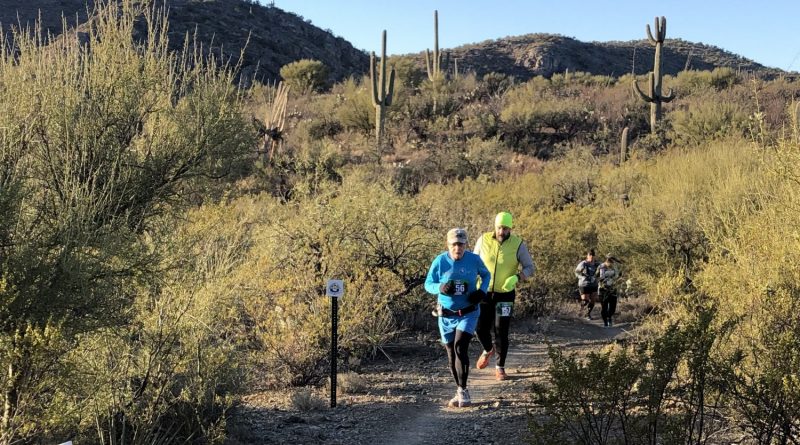Dr. Leff’s Guide to Living a Longer and Healthier Life
Update September 2024
-I try to keep this somewhat up to date as my regimen changes.
*Disclaimer: I’m NOT that kind of doctor. My PhD in business does not qualify me as a medical expert. I’m just a healthy guy in his older 60s who still runs half marathons, climbs mountains, skis, and does a lot of other active stuff who loves life and wants to keep enjoying it as long as possible.
I’ve recently made some major changes to my routine. I decided instead of following what Dr. David Sinclair (head of the longevity lab at Harvard) does I’ll more closely do what Dr. Peter Attia does. I decided Attia is a more reliable source. Sinclair has financial interests in a lot of companies and promotes their products, even if the evidence is not so solid. Attia goes pretty strictly by what has the best evidence.
I’m writing this because I’ve been following research on longevity for a while now – ever since I turned 65, really – and I hope that the research I’ve done may help some of my friends and family, or even other people, to live longer healthier lives. The people who know me I imagine trust me to have done my homework, with reliance on real science from real scientists as well as my personal experiences. I’m including links to research for those interested in seeing why I’m doing what I’m doing.
Background
Now that most baby boomers are eligible for Medicare, and many tech pioneers who made boatloads of money are part of that generation, there has been an explosion of interest in how to slow down or even reverse aging. Until recently, medicine has been exclusively focused on treating particular diseases as they come up. Serious research on aging overall, and how to slow it down, is relatively new.
While there are billions of dollars going into discovering new drugs for longevity – a venture capital driven search for the fountain of youth – there are many products already available as either supplements or prescription medications that have proven longevity benefits. Many don’t have the “gold standard” large clinical studies supporting them; since they are already available, and mostly inexpensive, no one has the incentive to fund such studies. But evidence is there.
Methodology
There are a lot of “snake oil salesmen” in the longevity business; I suppose there always have been. Just because something has interesting effects in mice, doesn’t mean it helps humans. For the most part, I’m following the regimen that Dr. Peter Attia, an MD with a longevity practice follows. I also look at what other respected longevity researchers are putting into their bodies, especially Dr. Nir Barzilai. I look for scientific studies in peer reviewed journals where possible.
Several of the things on this list are items I am just now adding to my routine. I’m cautious about what I put in my body. I don’t want to be a guinea pig for something completely unknown. I’m only taking stuff where there is good evidence supporting it, and negative side effects are limited or rare.
Summary
Sirolimus (rapamycin) 5mg once every ten days, 80 days on, 5 weeks off. Prescription required. I get it through https://gethealthspan.com , their program includes bloodwork every 6-8 weeks.
D3 5000 IU
K2 200 mcg
B12 1000 mcg
Spermidine 2.5 mg
AREDS 2 multivitamin
Magnesium SlowMag 143mg
Fish oil
Theracurmin 120mg
DHB Berberine 200mg
Creatine 5g
Protein powder as needed
Attia did a very good podcast in May reviewing a lot of health interventions for longevity, and categorizing them into five different buckets. You can listen to / read the notes here: https://peterattiamd.com/ep-300-exercise-nutrition-fasting-more/
- Proven – the evidence is in that this definitely works in humans.
- Promising – there may not be clinical trials that say it definitely works in humans but evidence from other species, observational studies in humans, etc., are good enough to say it very likely works.
- Fuzzy – there is some data suggesting it might work, but the data might be inconsistent or contradictory, so more data is really needed.
- Noise – there might be a compelling biochemical reason for why it should work, but insufficient data to even call it fuzzy.
- Nonsense – proven that it does not work. May not be harmful, but does not do what people claim it does.
Based on reviewing what he’s talked about I’ve dropped a few things from my routine:
- NMN – he puts this and other NAD interventions (NAD injections, NR) in the noise category. Looking at all the data he says the probability is very, very low that these things are geroprotective and he doesn’t take them himself.
- Pterostilbene – Pterostilbene is basically a more easily absorbed version of resveratrol. He says resveratrol is in the “nonsense” category – there was a lot of interest (it’s the stuff found in red wine that had some people saying red wine is good for you) but every study shows that it does not work. Based on that, I’ve dropped it.
- Fisetin – I had been taking it based on David Sinclair taking it, but data says it does nothing, so I’ve dropped it.
- Metformin – I had kind of already quit taking it after reading that it interferes with the benefits of exercise. Attia has downgraded Metformin from “promising” to “fuzzy.” There are problems with the studies that claimed it had dramatic benefits. He instead takes a different glucose control drug, an SLGT2 inhibitor (probably canagliflozin).
There are no drugs that are proven to be geroprotective (protect against aging diseases). The only things that are proven, or pretty much proven are:
- Exercise – both VO2 Max (cardio fitness) and muscle strength are incredibly important at extending health span. In the podcast he said, “You can’t prove anything in biology, but the probability that having a high VO2 max, high muscle mass, and high muscle strength are going to increase the length of your life and improve the quality of your life, that probability is so high that to act in disregard of that is irresponsible.”
- Not smoking and managing blood pressure are also in this category. I imagine not drinking excessively would also be here.
The most promising single currently available compound for healthy aging is rapamycin, which I have been taking since the spring. Pretty much every researcher in the field of longevity has put themselves on rapamycin. Of all the different things I take, rapamycin is the only for which I can definitely say I saw positive results: I had a couple of joint issues that had been bothering me for months cleared up within 3 or 4 weeks of being on rapamycin, and according to my Apple Watch, I get measurably more deep sleep when on rapamycin.
I’m thinking about adding acarbose to what I’m taking. It’s another prescription medication usually used for controlling diabetes, but the evidence supporting it for longevity seems to be better at this point than for metformin.
In addition to drugs and supplements:
Exercise: I work out in some form almost every day. Running, biking, and hiking for cardio with strength training at least once a week (should be two), and yoga once a week. On “rest” days I walk, hike, swim, and/or do yoga, so I’m still moving.
Sleep: Getting 7 or 8 hours of sleep for most people is important. Some people seem to manage fine on less. But not getting enough sleep is correlated with a lot of negative outcomes, including a higher risk for dementia. I use my Apple Watch to track my sleep and pretty consistently get 7 hours. I’m sleeping better than I did when I worked longer hours in high stress jobs…no surprise.
Diet: My diet could be better. I’m a pescatarian so don’t get the negative things associated with meat, but I like simple carbs (pasta, pizza) and cheese and probably eat more of that stuff than is ideal. But for me the point of living longer is to enjoy life. That’s also why I keep my alcohol consumption modest, but have not cut it out completely. I definitely would not want to live the way Bryan Johnson does, even if he manages to stay healthy a lot longer than I do.
Details
Prescription medications
Sirolimus (rapamycin) 5mg once every ten days, 80 days on, 5 weeks off. (for longevity, mTor inhibitor, encourages authophagy, anti-infammatory, promising for slowing aging, many leading longevity scientists have put themselves on it). Rapamycin is widely considered to be the most promising drug currently on the market that is believed to have longevity benefits. All the leading researchers have put themselves on it. It is primarily used in organ transplant patients to prevent immune system rejection of the new organ. In the doses those patients take, it is an immuno suppressant. In the dosing regimen for longevity, it may have some immune boosting properties, but the primary benefits are it promotes autophagy (clearing out toxic debris from cells), targets senescence (“zombie cells” that are not reproducing properly) and reduces senescent driven age-related inflammation. An article in the Washington Post describes the state of the research. It is a prescription medication, I get it through gethealthspan.com, and their program includes periodic blood testing to track progress and monitor for adverse symptoms.
I’m also on medication to manage blood pressure (a very low dose) and cholesterol (a PCSK9 inhibitor).
Supplements
D3 5000 IU – The benefits of D3 are well known, my doctor checked my D3 levels and recommended supplementation years ago. I’m taking 5000 IU a day. Desired level in your blood is above 30, you should have it checked when you have annual blood work done.
K2 200 mcg – Attia doesn’t have this on his list, but there is some evidence that it helps with heart health and calcium metabolism, and it mainly comes from animal sources and I’m on a mostly plant based diet. See “Vitamin K2—a neglected player in cardiovascular health: a narrative review” in openheart. K2 also helps with calcification of bones, see “Vitamin K2: Everything You Need to Know.”
B12 1000 mcg + methyl folate 400 mcg With a mostly plant based diet, I need to supplement B12. Attia takes it with methyl folate (B9) and some recent bloodwork suggested that could help me as well, so I switched to this version.
Magnesium SlowMag 143mg – Attia takes this, plus other forms of magnesium
Fish oil – While there were some studies that said fish oil can increase atrial fib in some people, Attia believes the benefits outweigh the small risk.
Theracurmin 120 mg – a more easily absorbed form of curcumin an ingredient in turmeric that has evidence for supporting cognitive function. It’s also an anti-inflammatory. Attia takes it, but didn’t specify what dose he takes.
Creatine 5g – Attia takes 5g with electrolytes when he works out, but he points out when you take it doesn’t matter. Very popular with athletes for helping build strength.
Protein powder – on Attia’s list, and has been on mine for a while. It’s hard for me to get as much protein as I should.
DHB Berberine 200mg – not on Attia’s list, but was recommended by the people I get my rapamycin from. Helps counter negative impact rapamycin can have on lipids and glucose.
Spermidine 2.5 mg (calorie restriction mimetic). Not on Attia’s list, and he doesn’t seem to discuss it on his podcasts, but there does seem to be some evidence for it. A supplement that promotes autophagy, and seems to reduce cardiovascular and cancer deaths in humans. See this article for more information.
AREDS 2 multivitamin – used to try and stave off age related macular degeneration.
There are a few other things Attia takes that I haven’t yet added to my routine, including things to help with sleep. I sleep pretty well as is so don’t feel I need them.
Know What You Need
Everyone is different. Since I have a mostly plant-based diet, I generally don’t get enough B12, so I supplement. I’ve had electrolyte issues, so I’m careful to add electrolytes when doing endurance exercise. You need to understand your individual health issues and make the appropriate adjustments.
Use it or Lose it
Anything designed to move – cars, motorcycles, airplanes, people – suffers if it sits unused too long.
If the health benefits of exercise could be bottled, it would be hailed as a “wonder drug.” Exercise can prevent all kinds of diseases from heart disease to diabetes, helps control weight, helps you sleep better and can provide mood benefits as well. If I’m feeling down or grumpy a run will usually get me out of the dumps.
No doubt your doctor has been telling you this for years. See this article “Real-Life Benefits of Exercise and Physical Activity” from the National Institute on Aging for more.
The important thing is to find something you actually enjoy doing. I’m blessed in that I actually enjoy working out, so it’s not a chore I have to push myself to do. Well, if it’s cold and raining, I do have to push myself to get out the door on a run, but on a normal day, no problem.
It’s important to include cardio, strength training, and flexibility stuff in your routine – all have different benefits. My current routine includes running (I typically run in two half marathons a year), biking, mountain biking, strength training, yoga, walking, and swimming. In the winter I also ski.
Use it or lose it also applies to the brain. Take up a new hobby. Learn a new skill. Learn a new language. Reading and writing helps keep my brain busy. I recently joined the Civil Air Patrol and have been learning lots of new stuff for that.
Use it or lose it also applies to sex. If you are not blessed with a partner with whom you enjoy an active sex life, masturbate. It keeps everything in working order should you later get a partner, and for men it can also help keep your prostate happy, so you don’t have to pee in the middle of the night so often. Having more frequent orgasms is also associated with a lower risk of prostate cancer. Besides, it’s a great stress reducer.
Speaking of stress reduction, meditation and/or prayer is also beneficial. See “The Science of Prayer” and “Meditation: A simple, fast way to reduce stress.” I try and pray meditatively, with mindfulness. Some days I’m more successful than others.
Conclusion
Of course, you can do everything right, and still get hit by a truck, or be the unlucky one that gets a stroke or cancer despite doing everything right. But you might as well do what you can to stack the deck in your favor.
Longevity research is a new thing. If you’re going to adopt a regimen like this, it’s important to stay up to date on the research – it could be longer term studies will show something you’ve been taking is not useful, or the negative effects outweigh the good, or some new thing could come along that’s even better than what you’ve been doing. And do it knowing your experimenting on yourself. A lot of this stuff doesn’t have solid evidence backing it.
As to when to start an anti-aging regimen, many of the researchers who are in their 50s are on such regimens, so it seems by the time you’re in your 50s you might want to get on board. You don’t have to wait until you’re officially a “senior citizen.”
I’d love to hear from you if you have something to add or found this useful.
B’vracha (with blessings),
Rav Barry



